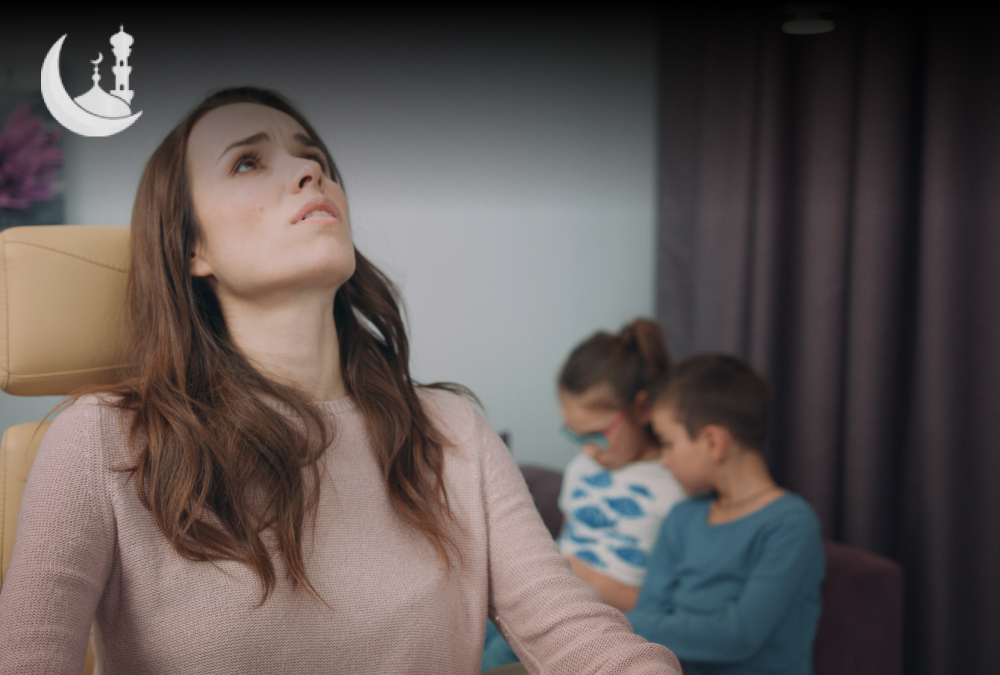Divorce is one of life’s most difficult endeavors. When a marriage comes to an end people may experience a number of feelings from sadness and frustration to anger and joy. In the middle of the court cases, stress, and changes, it is critical to pay attention to the most important factor of all – personal care. Self-care during divorce does not only help in the process of divorce but it is needed during this time in order to get through it with the best coping skills.
Get the best Islamic divorce counseling in Atlanta and tips on Self-care during divorce via experts at Marrkazul Irrshaad Wa Tawjeeh. Self-care during this phase is particularly critical during the divorce process, and here’s why and how you can practice it.
-
Managing Stress and Emotions
Divorce is inherently stressful. It can make one feel so many things like being sad, anxious, or even frustrated among others. Thus, they seem to use self-care to cope with these emotions since it offers them some structure.
Mindfulness and Meditation: Such activities assist in the relaxation of the mind and hence the reduction of anxiety. Take some time in a day, sit for a few minutes, concentrate on your breathing, and stay in the present.

Journaling: In writing, one can be able to express oneself and get rid of bottled-up emotions and at the same gain perspective.
-
Maintaining Physical Health
Psychological pressure affects bodily health, causing such consequences as sleep disturbances, changes in appetite, and decreased resistance to diseases. Physically taking care of the self is also very important.
Regular Exercise: Exercise increases the production of endorphins responsible for making you feel happy. The general goal should be to get at least half an hour of exercise for most of the days in a week.
Balanced Diet: Nutrition is very important in as much as it aids in the management of energy levels and general well-being. Also, there should be no intake of too much tea and sugar, as these worsen the levels of stress and anxiety.
-
Ensuring Adequate Rest
It is key to achieve quality sleep and this is usually affected during periods of stress. It is also important to get enough sleep to support the health of the body and mind.
Sleep Hygiene: Establish a routine for sleep, ensure that your bedroom is cooler and darker and avoid screens before bedtime to enhance sleep quality.

Relaxation Techniques: Some of the activities that may be taken to help one relax include: reading, taking a warm bath, or listening to music among others.
-
Seeking Emotional Support
It is important to note that going through a divorce can be lonely, but this is where you do not have to be alone. It is comforting to talk to other people and get another point of view.
Counseling and Therapy: A good therapist will assist you in working through your feelings and also assist you in managing them.
Support Groups: It may also help to find a divorce support group so that you can be with other people who are experiencing the same things as you and help each other.
-
Setting Boundaries
Divorce can be a process that includes difficult exchanges with the ex-spouse, lawyers, and even other people in one’s life. It is crucial to know where to draw the line to prevent the negative impact on your emotional health.
Limit Contact: Minimize communication with your ex-spouse, especially if the communication is negative or hostile. It is better to communicate in writing as much as possible to avoid misconceptions.
Say No When Needed: It is acceptable to say no to social invitations or requests that make you uncomfortable. Take care of yourself first.
-
Hobbies and Interests
Having some leisure activities and interests that you can engage in can help you to overcome stress during such a period.
Creative Outlets: Painting, writing or even playing music can be relaxing and give a sense that something has been achieved.
Outdoor Activities: Being in nature, whether it is hiking, gardening or just taking a walk in the park can help you feel happier and less stressed.
-
Planning for the Future
Focusing on the future and setting new goals can help to change your mindset from the negative point of view of loss to the positive point of view of opportunity.
Personal Goals: Think about what you want to do in the next few months or years, be it to continue your education, travel, or learn a new trade.

Professional Development: Take this time to look for job openings, enroll in classes, or begin a project that you are passionate about.
-
Practicing Self-Compassion
Self-compassion is also another critical factor that one should consider when going through a divorce process. Understand that it is acceptable to experience a wide array of emotions and that recovery is a process.
Positive Affirmations: Focus on good aspects of yourself and your character. Affirmations can help increase self-confidence and personal strength.
Forgiveness: Apologize for any mishaps and accept that guilt is unnecessary. It is important to accept that everyone is only human and that mistakes are inevitable in order to progress.
| Aspect | Details |
|---|
| Emotional Self-Care | Engaging in activities that support emotional well-being, such as journaling, talking to a therapist, or spending time with loved ones. These help process feelings and provide emotional stability. |
| Physical Self-Care | Maintaining physical health through exercise, proper nutrition, and adequate sleep. Physical well-being is crucial for managing stress and staying energized during the divorce process. |
| Mental Self-Care | Practicing mindfulness, meditation, or engaging in hobbies that stimulate the mind. Mental self-care can reduce anxiety and improve focus, helping to navigate the complexities of divorce. |
| Social Self-Care | Building and maintaining a support system of friends and family. Social interactions can provide comfort, reduce feelings of isolation, and offer a sense of belonging during this challenging time. |
| Spiritual Self-Care | Connecting with one’s faith or spiritual practices to find inner peace and guidance. Spiritual self-care can offer comfort and a sense of purpose, helping to cope with the emotional turmoil of divorce. |
| Practical Self-Care | Taking care of day-to-day responsibilities and organizing tasks related to the divorce. Practical self-care involves managing finances, legal matters, and daily routines efficiently. |
| Why Self-Care is Essential | Self-care is vital during a divorce to maintain overall well-being and resilience. It helps individuals cope with the emotional and physical toll of the process, ensuring they emerge stronger and healthier. |
| Long-Term Benefits of Self-Care | Consistent self-care practices can lead to long-term benefits, such as improved emotional health, stronger relationships, and a more positive outlook on life post-divorce. |
If you or someone you know are going through the difficult process of divorce and require understanding and qualified assistance, Marrkazul Irrshaad Wa Tawjeeh is ready to assist. At Georgia, our team of professional counselors is here to offer you individual counseling and therapy to help you cope with the emotional stress of the situation. You do not have to go through divorce alone, contact Marrkazul Irrshaad Wa Tawjeeh and start the process of moving forward to a better tomorrow. Please call today to arrange an appointment and find out how we can help you.
Conclusion
Life after divorce is never easy, but taking care of yourself can make the process easier and help you look forward to the future. Through stress management, physical health, seeking support, and planning for the future, one can come out of this experience as a better person with more self-awareness. Please bear in mind that it is not selfish to take care of yourself; it is a process of healing and creating a new life after divorce. Self-care needs to be a priority, and it is okay to take the time that one needs to heal.
Read Also: Building Resilience in Teens: Tips for Parents and Counselors
FAQs
Q1) How do I deal with stress and feelings during a divorce?
Stress and emotional management in the process of divorce includes the implementation of self-care strategies such as mindfulness, meditation and journaling. These activities serve as a form of relaxation, stress relief, and an effective way of dealing with emotions.
Q2) What is the significance of finding someone to talk to during the process of divorce?
This is because, when going through a divorce, emotional support is needed to fight loneliness and to gain comfort and understanding. Therapists and support groups can help you find practical ways to manage your feelings and connect with other people who have similar experiences.






